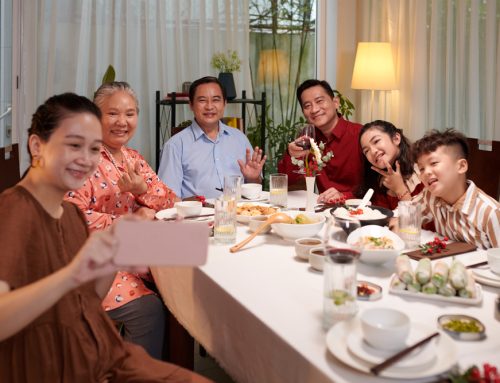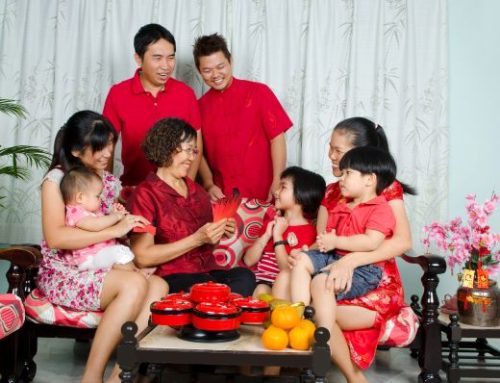I was having a nice conversation with my aunty from London one morning; she and her husband are currently visiting her daughter in London. Normally, we never had much time to talk as she is at the hospital almost every day to supervise and help care for her Mum, my elderly grand aunt.
I’ve managed to connect with her during our recent trip back to Penang and I am really glad to have the chance to connect with her.
Throughout the conversation from her London home, my aunty touched on topics about the challenges of parenting, looking after elderly parents, commitment to the family, missing the children who live so far away and making time for each other as a couple.
All in all, it was the most educational chat and I learned a lot from the conversation. I am so glad they are now spending 3 weeks with their daughter in London, reconnecting with each other and making time to connect as a family as well as a couple.
However during our conversation, something she said really struck me and I felt that I needed to share this message. This is what she said: “….they know that we are not perfect, but they also know we love them unconditionally…to them, that’s enough.”
This is the topic of today’s blog: Unconditional Love!
I wrote about creating a home environment safe for your children to excel, feeling secure and emotionally confident. However, there is another important component that is crucial to your children’s’ well being – Unconditional Love.
Unconditional Love
We hear a lot about unconditional love, but what does it actual means? What does it look like? How does it feel like?
We all love our children; we try our very best to provide for them, so… aren’t we caring for our children? Don’t we all love our children unconditionally?
Let’s look at what conditional love is..
From my own childhood experiences and from observing my relatives and my own parenting style, I knew the traditional style of parenting, which was more aligned with the older style parenting paradigm where punishment and control prevailed.
What does that look like?
For example, if a child misbehaves, the child will potentially be severely scolded, face a potential time-out, have their privileges taken away, be physically punished or they will be ignored until the child apologises and conforms to the parent’s demand/s.
Let’s look at a real life situation.
A daughter was unhappy and stressed, and while having a conversation with her Mum, she did or said something that did not meet the “standard” of the mum. The Mum was particular about maintaining a certain standard, so she would try to control and challenge the daughter’s behaviour. She told the daughter off and judged the daughter as being “stupid” or “rude” for the action.
The daughter was already stressed, and ideally, would really love a sympathetic ear from her mum. The daughter was not aware that an unconscious reaction would cause such anger from her mum. So she coped a barrage of judgement from her mum (the person who is supposed to stand by and protect her).
The daughter thought the judgement was unfair, and through her own unconscious action, she decided to “retaliate” back. The Mum, being hurt and angry for being spoken to so rudely by the daughter, then reacted very angrily and in turn “judged” the daughter even more. The mum could decide to impose discipline on her daughter by removing all her privileges and send the daughter to her room or completely ignore the daughter until she apologised for her outburst.
So this is how “conditional” love looks like: “I will love you so long as …”
How can parents overcome this?
- Listen to your children.
- Validate their feelings and love them unconditionally.
- Accept and appreciate them for who they are and realise that everyone is unique in his or her own way.
- Acknowledge that behaviour is a way to communicate with you, but behaviour can upset you when children defy or disobey you,
- Focus on building a relationship with them.
By being conscious of your parenting paradigm, you are allowing your children to excel and flourish, to be the person they set out to be without fear of being judged, blamed, ignored or punished.
Wouldn’t you too, long to be accepted and loved for WHO you are unconditionally, without fear of blame, guilt or judgement? Or without having to please everyone to gaining love?
Unconditional love – a blessing and a gift not only to your child, but to your family and yourself.









Leave A Comment